Activated carbon
Apurva Groups Leading Activated Carbon suppliers in Kolkata, Malaysia, Singapore, Sri Lanka, Indonesia, Germany.
Activated Carbon Stockiest. Activated carbon is a carbonaceous, highly porous adsorptive medium that has a complex structure composed primarily of carbon atoms. The networks of pores in activated carbons are channels created within a rigid skeleton of disordered layers of carbon atoms, linked together by chemical bonds, stacked unevenly, creating a highly porous structure of nooks, crannies, cracks and crevices between the carbon layers.
We are Activated Carbon suppliers which are manufactured from coconut shell, peat, hard and soft wood, lignite coal, bituminous coal, olive pits and various carbonaceous specialty materials. Chemical activation or High Temperature Steam Activation mechanisms are used in the production of activated carbons from these raw materials.
The intrinsic pore network in the lattice structure of activated carbons allows the removal of impurities from gaseous and liquid media through a mechanism referred to as adsorption. This is the key to the performance of activated carbon.
We are leading manufacturer, suppliers of activated carbon used in a wide of industrial applications
Adsorption
Adsorption is the attachment or adhesion of atoms, ions and molecules (adsorbates) from a gaseous, liquid or solution medium onto the surface of an adsorbent – activated carbon. The porosity of activated carbons offers a vast surface on which this adsorption can take place. Adsorption occurs in pores slightly larger than the molecules that are being adsorbed, which is why it is very important to match the molecule you are trying to adsorb with the pore size of the activated carbon. These molecules are then trapped within the carbon’s internal pore structure by Van Der Waals Forces or other bonds of attraction and accumulate onto a solid surface.
Typically 1 m3 of Activated Carbon with 0.3m3 of internal pores can adsorb 30m3 or more of a gas, even if present in low concentrations in a carrier.
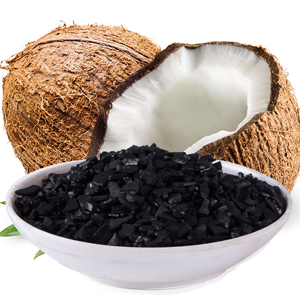
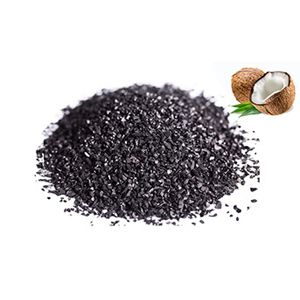
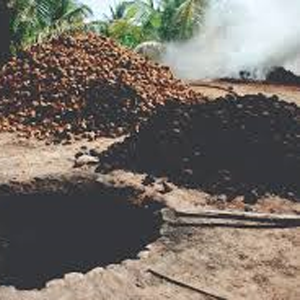
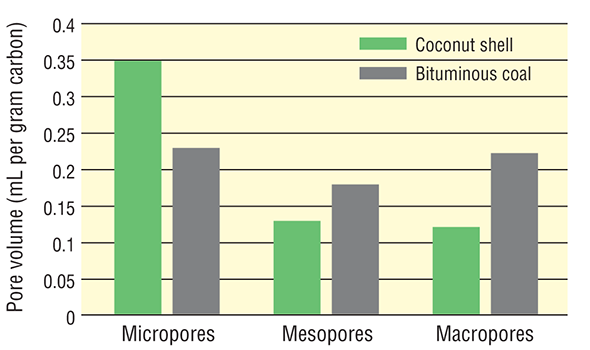
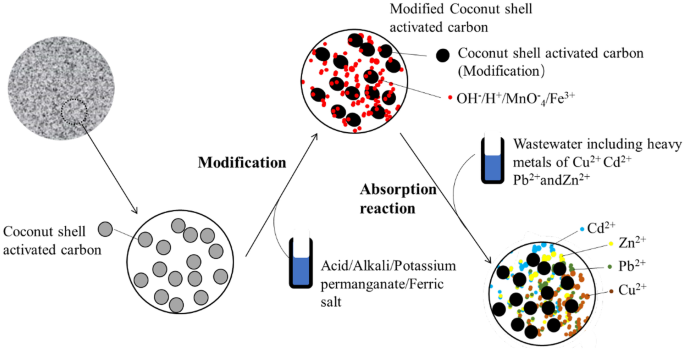
Technicals
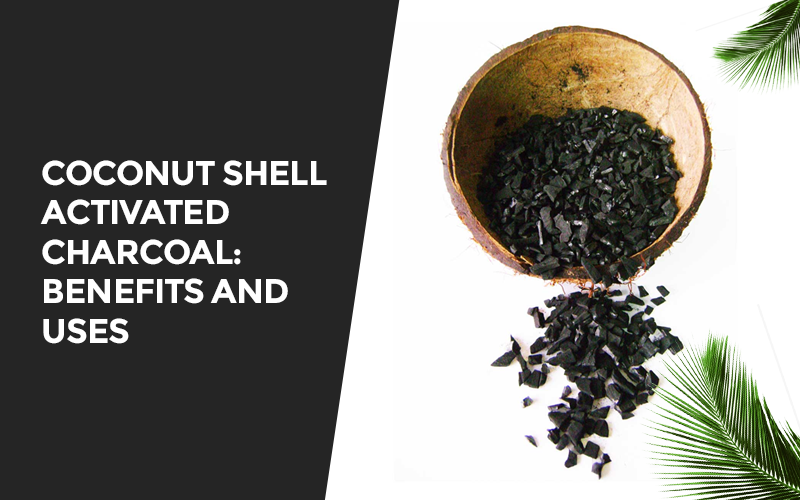
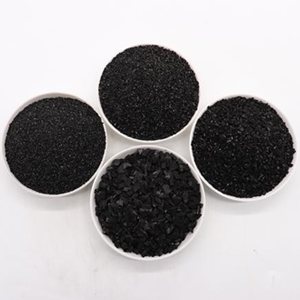

Uses
- Industrial : One major industrial application involves use of activated carbon in metal finishing for purification of electroplating solutions. For example, it is the main purification technique for removing organic impurities from bright nickel plating solutions. A variety of organic chemicals are added to plating solutions for improving their deposit qualities and for enhancing properties like brightness, smoothness, ductility, etc. Due to passage of direct current and electrolytic reactions of anodic oxidation and cathodic reduction, organic additives generate unwanted breakdown products in solution. Their excessive build up can adversely affect plating quality and physical properties of deposited metal. Activated carbon treatment removes such impurities and restores plating performance to the desired level.
- Medical : Activated carbon is used to treat poisonings and overdoses following oral ingestion. Tablets or capsules of activated carbon are used in many countries as an over-the-counter drug to treat diarrhea, indigestion, and flatulence. However, activated charcoal shows no effect on intestinal gas and diarrhea, and is, ordinarily, medically ineffective if poisoning resulted from ingestion of corrosive agents, boric acid, petroleum products, and is particularly ineffective against poisonings of strong acids or alkali, cyanide, iron, lithium, arsenic, methanol, ethanol, or ethylene glycol. Activated carbon will not prevent these chemicals from being absorbed into the human body. It is on the World Health Organization’s list of Essential medicines, the safest and most effective medicines needed in a health system.
- Distilled alcoholic beverage purification : Activated carbon filters (AC filters) can be used to filter vodka and whiskey of organic impurities which can affect color, taste, and odor. Passing an organically impure vodka through an activated carbon filter at the proper flow rate will result in vodka with an identical alcohol content and significantly increased organic purity, as judged by odor and taste.
- Gas purification : Filters with activated carbon are usually used in compressed air and gas purification to remove oil vapors, odor, and other hydrocarbons from the air. The most common designs use a 1-stage or 2 stage filtration principle in which activated carbon is embedded inside the filter media. Activated carbon filters are used to retain radioactive gases within the air vacuumed from a nuclear boiling water reactor turbine condenser. The large charcoal beds adsorb these gases and retain them while they rapidly decay to non-radioactive solid species. The solids are trapped in the charcoal particles, while the filtered air passes through.
- Chemical purification : Activated carbon is commonly used on the laboratory scale to purify solutions of organic molecules containing unwanted colored organic impurities.Filtration over activated carbon is used in large scale fine chemical and pharmaceutical processes for the same purpose. The carbon is either mixed with the solution then filtered off or immobilized in a filter.
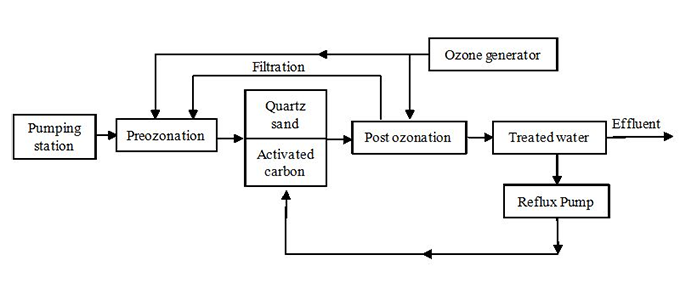
To provide world class solution, through innovative system, teamwork & smooth process. We aspire to delight our believers by performing better than their expectations. Apurva Groups Leading Activated Carbon supplier in Kolkata, Malaysia, Singapore, Sri Lanka, Indonesia, Germany.
